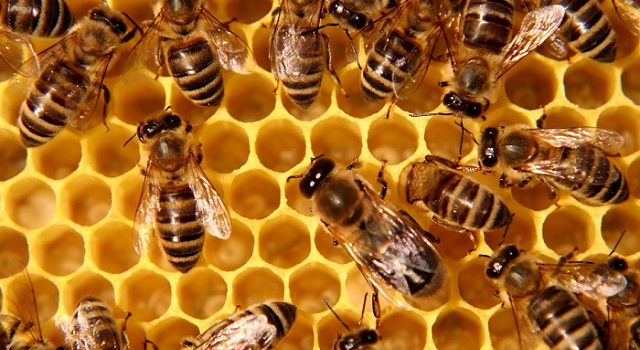
Lira, Uganda | THE INDEPENDENT | Bee farmers in Lango sub region are attributing the reduction in honey production to the continuous spraying of crops using pesticides. Over the years, farmers have applied chemicals to control both pests and diseases that ravage crops in the region.
Such spraying was in 2020 when desert locusts invaded the districts of Otuke and Alebtong. Earlier, farmers in Lira, Kole and Oyam had sprayed crops to control fall armyworms. All these, the beekeepers say do not provide a conducive environment for bees to produce honey.
Tom Anyii, the operator of Tom Anyii Farm (TAF) in Lira district says the honey production in his farm has reduced to less than a ton compared to three to four tons he used to produce in a year because most bees were killed by the chemicals. In the last season, TAF produced approximately 500 kilograms of honey.
According to Anyii, the reduction of honey affected the production of other products that he used to produce from honey. He advised farmers to consider setting up their apiary in areas far away from the crop gardens to avoid exposing the bees to pesticides.
“The location of your apiary is probably the most important factor in eliminating the risk of pesticide poisoning. The further colonies are away from fields or orchards that are treated with pesticides, the better chance the bees have against pesticide poisoning.”
Daniel Odongo, the production manager at Wimrob bees company explains that the smells of chemicals used for spraying crops force bees to abscond whereas some die before they could abscond.
Odongo advised farmers to consider spraying their crops late in the evening when bees are not foraging.
Barnabas Mude, an entomologist working at Ngetta Zonal Agricultural Research Development Institute explained that both farmers dealing in crops and beekeeping must co-exist.
Pesticides are substances used to eliminate unwanted pests whereas insecticides rid us of unwanted insects. Unfortunately, honey bees are insects and are greatly affected by insecticides because they can be killed by insecticides through direct contact of the insecticide on the bee while it is foraging in the field.
*****
URN
 The Independent Uganda: You get the Truth we Pay the Price
The Independent Uganda: You get the Truth we Pay the Price



